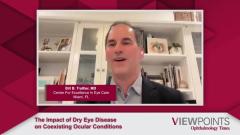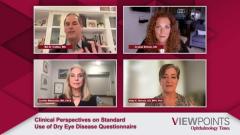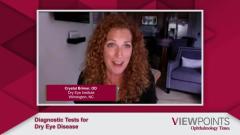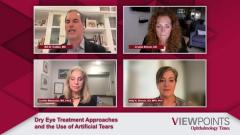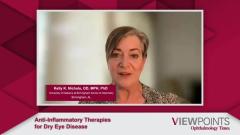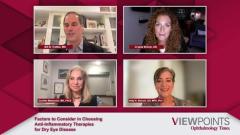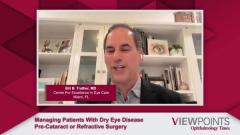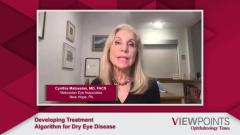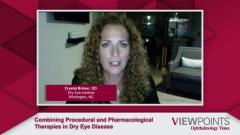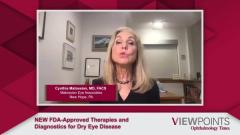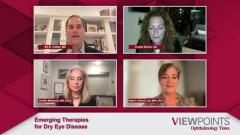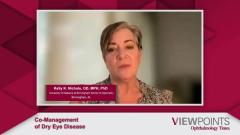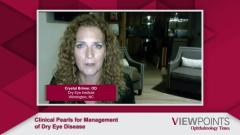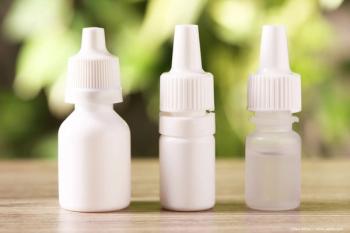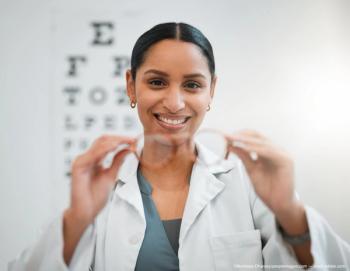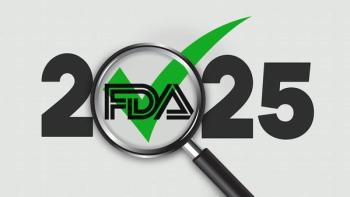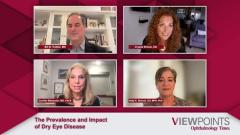
The Impact of Dry Eye Disease on Coexisting Ocular Conditions
Experts discuss the impact of dry eye disease (DED) on coexisting ocular conditions and their clinical experience managing these patients.
Episodes in this series

Transcript
Bill B. Trattler, MD: Let's just talk just a little bit more in-depth about how dry eye affects coexisting ocular conditions, or focusing on accurate conditions, like how does it make you approach the patients with other ocular conditions, and how does dry eye impact that?
Cynthia Matossian, MD, FACS: I'm so glad you asked that question, Bill, because so many of us are siloed into our own subspecialties. Let's take right now, for example. You know, these doctors see day in, day out, people who are losing vision, going blind, let's say, from AMD. Geographic AMD or, you know, neovascular AMD. They're getting injections, you know, every so many weeks apart. And their fear is, can I maintain the patient's vision? But these patients are also suffering, many of them, from dry eye disease. All the prep, all the anesthetic, the gels, et cetera, are really wreaking havoc on their surfaces. So that's just an example where coexisting diseases does not mean that we as ophthalmologists and optometrists can only focus on our little niche area. We truly have to look at the surface. Same with those who wear contact lenses. You know, their surface may be getting pummeled by over wear of contact lenses, sleeping in contact lenses, maybe extending the wear when they shouldn't be to save money, or with people who, for example, have glaucoma. We are requesting our patients to be compliant with their [medications]. Most of the glaucoma drops have what in them? Preservatives. So, we're not just glaucoma specialists. We also have to be surface specialists.
Bill B. Trattler, MD: You nailed a couple of great areas. I agree. I'm going to take a multi-specialty practice with each of those specialists. And I realize we need to continue to train everybody to manage dry eye, not just those that love dry eye. So, everyone needs to be able to handle those patients generally. Maybe Dr. Nichols next, any additional thoughts? I guess you see so many patients with dry eye in your practice. So, I'm just curious your thoughts on how dry impacts coexisting ocular condition.
Kelly K. Nichols, OD, MPH, PhD: I'll just say, just to piggyback on Cynthia, when people are so siloed into their particular areas, and of course they're usually really good at those particular areas, it's really hard to then like take a step back and maybe think about the ocular surface. And that's where a really good partnership comes in, whether it be somebody in the practice whose sole job is to be doing ocular surface or the referral down the street. I think it's recognizing and having that good network to be able to, then take care of that patient. If you want to focus on that specialty and don't want to, we'll just say, be bothered by the ocular surface part which somebody else probably really loves. So, I think it's a matter of finding the people who are going to be part of your network so that the patients can get that care and it really will result in a better outcome all the way around for all the subspecialties, if that's done.
Bill B. Trattler, MD: Oh beautiful, great. So many great points. Completely agree. Dr Brimer, your thoughts?
Crystal Brimer, OD: Well, not only do I agree, but I would reinforce that by saying, my number one referral source is the two glaucoma specialists in town, the three retinal specialists, the neuropathologist and the corneal specialist, because they're getting the referrals for dry eye. But it's not really what they want to do either. But definitely the retina and the glaucoma, because it's either coexisting or they're creating it with the side effects from the medications. So, it's evident every day.
Bill B. Trattler, MD: Perfect, I totally agree. I guess I'm somewhat like you, actually all three of us, because in my practice I have multiple specialists. So, I'm getting the referrals from everybody in the group. Thankfully, [and] we'll talk about these new medications coming up, I think all these new medications continue to help us take even better care of our patients.
Transcript is AI-generated and edited for clarity and readability.
Newsletter
Don’t miss out—get Ophthalmology Times updates on the latest clinical advancements and expert interviews, straight to your inbox.


